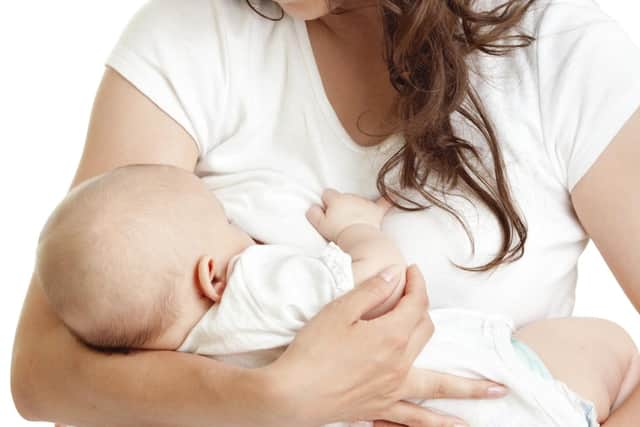Mum’s rights breach on son justified
and live on Freeview channel 276
The woman claimed physical contact with the child taken into foster care was unlawfully stopped when the first lockdown was announced in March 2020.
But Mr Justice McFarland held that the prohibition imposed by a health and social care trust amid an unprecedented public emergency had been appropriate and correct.
Advertisement
Hide AdAdvertisement
Hide AdHe said: “It has to be borne in mind that the situation faced at the time was unique in terms of world history.”


The woman, who cannot be identified, gave birth to a son referred to as OS in January 2020.
Within days an interim court order was granted for the baby to be removed and placed with a foster carer.
Despite the separation, OS’s mother was allowed contact with him five times a week.
Advertisement
Hide AdAdvertisement
Hide AdArrangements were also put in place for her to both continue breastfeeding and express her milk to be stored and transported by the trust.
Direct contact with her son was halted after the UK government imposed stringent lockdown restrictions in response to the coronavirus emergency.
Under a substitute regime, the woman had live-link indirect visual contact five days a week and continued to provide her milk.
Citing her mental health problems, the judge described her commitment to feeding the child as “nothing short of remarkable”.
Advertisement
Hide AdAdvertisement
Hide AdIn June 2020 direct contact was reinstated, with the woman allowed to resume breastfeeding of OS.
Her legal action centred on allegations the trust violated family life entitlements, protected by Article 8 of the European Convention on Human Rights, by denying skin to skin contact with the baby over the previous three months.
The court heard how the authority had to react to the start of the pandemic by implementing unprecedented restrictions.
Those steps impacted on how social workers operated and interacted with parents, children and foster carers.
Advertisement
Hide AdAdvertisement
Hide AdThe trust accepted there was an interference with the mother’s Article 8 rights between March and June 2020, but contended it had been justified due to the threat to the general public health and those involved in any contact arrangements.
In a published judgment, Mr Justice McFarland highlighted that a 24-hour curfew had essentially been imposed at an early stage in the understanding and treatment of Covid-19.
“Panic is perhaps an inappropriate word to describe the general approach at that time, but there was a widespread high degree of concern about a potential public health disaster both within the various arms of government and by the public at large,” he said.
The judge held that a proper evaluation was carried out, based on relevant advice at that time.
Advertisement
Hide AdAdvertisement
Hide Ad“The public health risk at that time could be properly regarded as at a critical level and it was correct to place greater weight to this risk, thus diminishing the importance of the Article 8 right,” he stated.
Dismissing the woman’s challenge, he commended both sides for ensuring OS still received her milk.